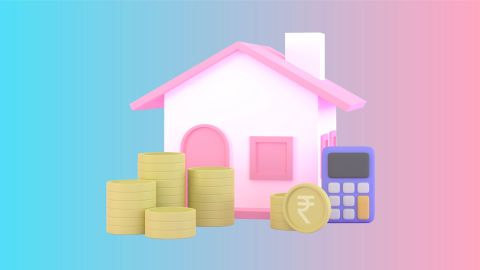The Goods and Services Tax (GST) has revolutionised the tax landscape in India, impacting various sectors, including construction. For those involved in building construction, understanding GST implications is crucial for financial planning and compliance. This comprehensive guide covers everything you need to know about GST on building construction, from rates and regulations to financing options and relevant financial products.
What is GST?
GST is a comprehensive indirect tax levied on the supply of goods and services across India. It has replaced multiple cascading taxes levied by the central and state governments, such as VAT, service tax, and excise duty, thereby simplifying the tax structure and increasing transparency.
GST on building construction: An overview
In the context of building construction, GST applies to the supply of construction services and materials. The introduction of GST has streamlined the tax process, making it more transparent and reducing the likelihood of hidden costs. However, it also adds a layer of complexity that builders and developers need to navigate carefully.
GST rates on building construction
The GST rates on building construction vary based on the type of property and the nature of the construction services:
1. Residential properties:
- Affordable housing: 1% GST without Input Tax Credit (ITC).
- Other than affordable housing: 5% GST without ITC.
2. Commercial properties:
- Standard rate: 18% GST with ITC.
3. Construction services:
- General construction services: 18% GST with ITC.
- Works contract services: 12% GST with ITC, applicable to government contracts or contracts involving affordable housing.
Calculation of GST on building construction
To understand the financial impact of GST on building construction, let’s consider an example. Suppose the cost of construction for a residential building (non-affordable housing) is Rs. 1 crore. Here’s how GST is calculated:
Residential building (Other than affordable housing):
- GST: 5% of Rs. 1 crore = Rs. 5 lakh
- Total cost = Rs. 1.05 crore
For commercial buildings or general construction services, the calculation will be based on the 18% GST rate with ITC, which allows builders to claim credit for taxes paid on inputs.
Impact of GST on builders and developers
The introduction of GST has both positive and negative impacts on builders and developers:
Pros
- Simplified tax structure: GST replaces multiple taxes with a single tax, simplifying the tax process and reducing the likelihood of tax evasion.
- Increased transparency: The unified tax structure under GST enhances transparency, reducing hidden costs and improving compliance.
- Input Tax Credit: The availability of ITC allows builders to claim credit for taxes paid on inputs, reducing the overall tax burden.
Cons
- Increased compliance requirements: GST requires builders and developers to maintain detailed records and adhere to strict compliance norms, which can increase administrative costs.
- Higher upfront costs: The GST on building construction adds to the initial cost of construction, which can impact cash flow and project timelines.
Financing construction projects
Financing is a critical aspect of any construction project. Financial institutions offer various products to help builders and developers manage their finances efficiently. Here are some relevant financial products:
- Construction loans: These loans are specifically designed to fund construction projects, covering costs such as materials, labour, and permits. They offer flexible repayment terms and can be customised to suit the project’s cash flow requirements.
- Home loans: For individuals looking to finance the purchase of a newly constructed property, home loans are an ideal solution. They cover a significant portion of the property's cost. Borrowers can choose between floating and fixed interest rate home loans based on their financial planning and market conditions. Bajaj Housing Finance Home Loan provides competitive interest rates and extended repayment terms, easing the financial burden on homebuyers.
- Loan against property: This product allows builders and developers to leverage their existing properties to secure funding for new projects. It offers competitive interest rates and flexible repayment options. Bajaj Finance offers convenient loan against property for a tenure of up to 15 years for a loan amount of up to 10.50 crore.
- Equipment financing: This financial product helps builders purchase or lease construction equipment, ensuring that they have the necessary tools to complete their projects efficiently.
For those navigating the complexities of building construction and GST, staying informed and leveraging suitable financial products is crucial. By understanding the GST implications and exploring financing options, builders and homebuyers can make informed decisions that align with their financial goals and aspirations.




